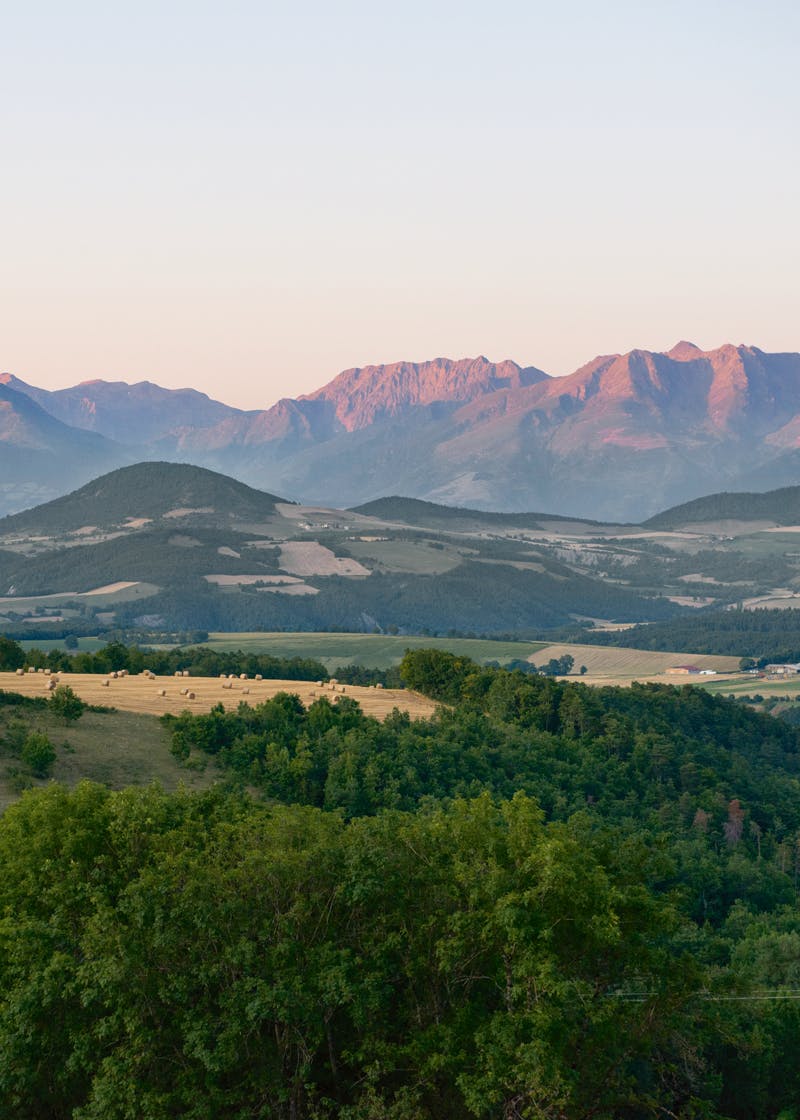
Accelerating the transition of the Group’s terroirs to agro-ecology
Adopting agro-ecological practices to make the Group’s terroirs more resilient
Healthy, properly replenished soil is more resilient to prolonged drought, late frosts and sudden downpours. The Group, led by certain pioneering Houses, is thus keen to adopt agro-ecological practices that put soil health front and centre, as a way of getting its terroirs ready to face the challenges of climate change. Cover cropping, supply of organic matter, agroforestry, reduced ploughing, limited synthetic inputs: all these things promote biodiversity and carbon sequestration in soils, as well as preserving soil capital and fertility.
The Domaine des Hautes Glaces: developing regenerative practices
The Domaine des Hautes Glaces is well-versed in organic regenerative agriculture, having been committed to working in a way that respects the land for over twelve years now.
The distillery (Europe’s highest) has joined forces with local farmers equally committed to the cause, establishing a new organic supply chain for barley, rye, spelt, oats and triticale. As well as respecting the land (crop rotation, cover cropping, parcelling, agroforestry, zero synthetic inputs), the House has found a new balance based on the principles of agricultural economics - an approach that resonates with the Group’s values.
Its local supply chain offers a new vision for regional development, as well as sustainable opportunities in converting farms to organic regenerative agriculture. Being relatively small and agile, the Domaine des Hautes Glaces is the perfect testing ground. It explores and revives centuries-old local expertise in grain farming and craftsmanship. Its still, for example, is made by a local boilermaker and heated by a wood pellet burner. The Domaine des Hautes Glaces is forging ahead, setting an example and developing best practices for the Group’s other Houses.
